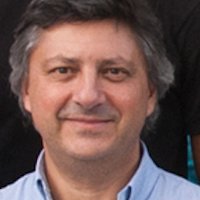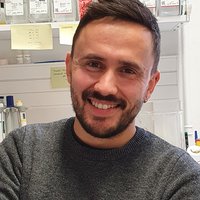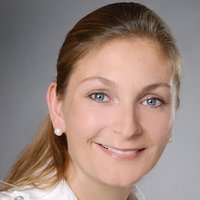Emerging and re-emerging viruses
- Duration: 8 weeks
- Effort: 24 hours
- Pace: ~3 hours/week
- Languages: English
What you will learn
At the end of this course, you will be able to:
- identify the main viruses involved in viral emergence and re-emergence
- explain the molecular mechanisms and lifestyle changes underpinning viral emergence
- discuss surveillance and monitoring tools for emerging viruses,
- describe the current COVID-19 pandemic from a virological and epidemiological perspective.
Description
Emerging and re-emerging viruses are key players among the different pathogens that have caused recent epidemics, as attested by several severe outbreaks affecting humans such as Ebola, chikungunya, influenza, Zika, dengue, SARS and MERS or outbreaks attacking animals such as rabies and bluetongue disease.
This MOOC aims to provide a fundamental knowledge about the different viruses that are involved in viral emergence and describes the associated molecular mechanisms and conditions that drive their emergence. Those range from viral mutations to climate change, the impact of urbanization to alterations in human behaviour.
Special attention is given to the global “One Health” approach. The MOOC also provides basic insights on viral epidemiology and outbreak modelling as well as on detection, early management and infection control mechanisms. It focuses on the scientific and medical measures to prevent and counteract the emergence or re-emergence of viruses, but it also brings a view about the response of governments and agencies such as the World Health Organization to control the worldwide viral dissemination. The MOOC is built up on the profound expertise from international experts in the field of emerging and re-emerging viruses and takes advantage of the worldwide Institut Pasteur Network.
Finally, it should be emphasized that this MOOC illustrates the latest knowledge about the current SARS-CoV-2-Covid-19 pandemic. Here are presented data from Covid-19 virology, epidemiology and vaccinology, as well as the latest findings on the structural determinants of Covid-19 for the design of therapeutic monoclonal antibodies. The impact of Covid-19 infection on the central nervous system is also deciphered.
For this third edition, a sequence about SARS-CoV-2 variants (by S. van der Werf) has been added.
Format
This MOOC is organized in 8 chapters of 4 to 8 sessions each. Each session includes a 6 to 10-minute video and 2 multiple choice questions to help you test your understanding. There are 8 to 16 multiple choice questions at the end of each chapter. The videos are in English, subtitled in English and French.
This MOOC includes a Forum where you can post any questions you may have on all the chapters of the MOOC.
Want to stay informed? Follow us on LinkedIn, X- Twitter and YouTube to discover all our events.
Prerequisites
We recommend a good scientific background (such as a bachelor of life science).
Assessment and certification
To follow this course, you have the choice between two formulas. The DISCOVERY path gives you access to videos, quizzes and exchanges in the forum. Additionnaly, the QUALIFYING path gives you access to a qualifying exam.
- Discovery path
If you opt for this path, you will have access to the videos, the quizzes and the exchanges in the forum. For this path, no certificate will be delivered. The registration is free.
- Qualifying path
In addition to the activities offered in the DISCOVERY path, the QUALIFYING formula will allow you to obtain a certificate in the form of a "certificate". To do this, you will have to take a exam, monitored remotely, lasting 1 hour, consisting of 30 multiple choice questions (MCQ) and obtaining 18 correct answers.
The registration fee for the qualifying course is 150€.
Obtaining a qualifying certification is an opportunity for you to obtain a diploma. This course is one of the MOOCs of the Institut Pasteur's Digital Diploma in Infectious Diseases program (DNM2IP). For more information, see the Institut Pasteur web page, dedicated to this new diploma.
Course plan
- W1-1: General Introduction
W1-2: Definition: Emerging and re-emerging
W1-3 : Principles : Vectors, Hosts, Reservoirs…
W1-4: One Health (Hervé Bourhy, Institut Pasteur)
- W2-1 : Newly identified viruses (Marc Eloit, Institut Pasteur)
W2-2 : Avian Influenza (Jean-Claude Manuguerra, Institut Pasteur)
W2-3: Previously known viruses that acquired additional virulence traits: Influenza viruses 1 and 2 (Sylvie van der Werf, Institut Pasteur)
W2-4: Control of the host on the virus (Carla Saleh, Institut Pasteur)
- W3-1: Changes in urbanization, human behavior (Pascal Handschumacher UNISTRA)
W3-2: Changes in Climate, deforestation, Natural disasters(Joacim Rocklöv (Université d’Umea, Sweden)
W3-3 : Coronavirus : SARS, MERS-CoV (Luis Enjuanes, Madrid)
W3-4: Yellow Fever(Nolween Jouvenet, Institut Pasteur)
W3-5: Hantavirus and Lassa Fever (Noel Tordo, Institut Pasteur)
W3-6: Human-nonhuman primate contact as a driver of viral emergence (Tamara Gilles-Vernick)
W3-7: A 20 year experience of Bluetongue circulation in Europe (Damien Vitour)
- W4-1: Bornavirus diseases (Hilde Angermeier, Institut Pasteur EUPHEM)
W4-2: Nipah Virus (Birgit Nikolai)
W4-3: Dengue (Marie Flamand, Institut Pasteur)
W4-4: Rift valley fever (Benjamin Brennan, Glascow)
W4-5: Crimean-Congo virus (Claudia Filippone, Institut Pasteur Madagascar)
W4-6: Hepatitis E (Nicole Pavio, ANSES Maisons-Alfort)
- W5-1: Phylogeny and viruses (Noël Tordo, Institut Pasteur)
W5-2: Epidemiology of Zika (Arnaud Fontanet, Institut Pasteur)
W5-3: Epidemiology of Hepatitis C in Egypt (Arnaud Fontanet, Institut Pasteur)
W5-4: Ebola and Marburg diseases (Noël Tordo, Institut Pasteur Guinée)
W5-5: Quasispecies and viruses (Esteban Domingo, Madrid)
W5-6: Modelling the epidemiology of viral infection (Simon Cauchemez, Institut Pasteur)
- W6-1 : Surveillance of vectors (Norbert Becker, Heidelberg)
W6-2 : Surveillance of viral diseases (Harold Noël, Santé Publique France)
W6-3 : Molecular epidemiology (Antoine Gessain, Institut Pasteur)
W6-4 : CIBU and Arboviruses (Jessica Vanhomwegen, Institut Pasteur)
- W7-1: Vector control activities (Norbert Becker, Heidelberg)
W7-2: Preparedness (Marie-Paule Kieny, Inserm)
W7-3: Public health response: from science to politics (Didier Houssin, DGS)
W7-4: Vaccines (Frédéric Tangy, Institut Pasteur)
W7-5: Therapeutics (Etienne Decroly, AFMB Polytech, Luminy)
W7-6: WHO list of blueprint priority diseases (Marie-Paule Kieny, WHO)
- W8-1 : Covid19 - Virology (Olivier Schwartz)
W8-2 : Covid19 - Epidemiology (Arnaud Fontanet)
W8-3 : Covid19 - SARS-Cov2 variants (Sylvie van der Werf)
W8-4 : Covid19 - Structure and Monoantibodies Therapy (Felix Rey)
W8-5 : Covid19 - Covid19 and its impact on the CNS (Guilherme Dias De Melo)
W8-6 : Covid19 - Vaccinology (Christiane Gerke)
Course team
Jean-Pierre Vartanian
Categories
Pierre-Emmanuel Ceccaldi
Categories
Maxime Chazal
Categories
HILDE ANGERMEIER
Categories
Organizations
Partenaires
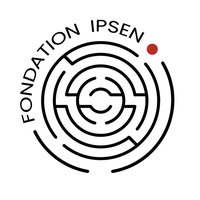
Fondation Ipsen
With the support of Fondation Ipsen under the aegis of Fondation de France
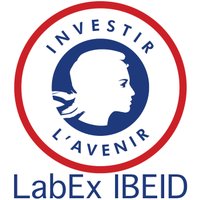
Labex IBEID
With the support of LabEx Integrative Biology of Emerging Infectious Diseases (IBEID)
License
License for the course content

Attribution-NonCommercial-NoDerivatives
You are free to:
- Share — copy and redistribute the material in any medium or format
Under the following terms:
- Attribution — You must give appropriate credit, provide a link to the license, and indicate if changes were made. You may do so in any reasonable manner, but not in any way that suggests the licensor endorses you or your use.
- NonCommercial — You may not use the material for commercial purposes.
- NoDerivatives — If you remix, transform, or build upon the material, you may not distribute the modified material.
License for the content created by course participants

Attribution-NonCommercial-NoDerivatives
You are free to:
- Share — copy and redistribute the material in any medium or format
Under the following terms:
- Attribution — You must give appropriate credit, provide a link to the license, and indicate if changes were made. You may do so in any reasonable manner, but not in any way that suggests the licensor endorses you or your use.
- NonCommercial — You may not use the material for commercial purposes.
- NoDerivatives — If you remix, transform, or build upon the material, you may not distribute the modified material.


